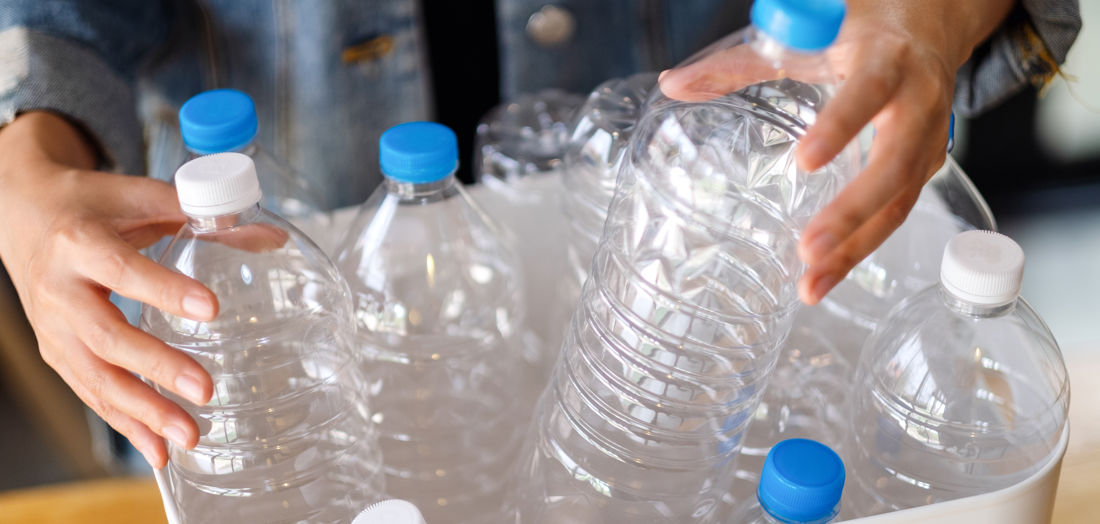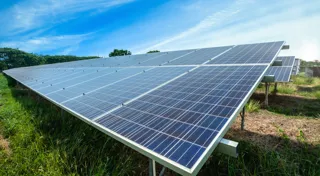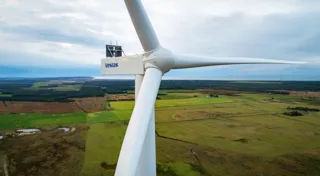Report shows pandemic gave Australians time to rethink recycling

The CEFC has worked with Cleanaway since 2017 to reduce the amount of waste going to landfill. We are pleased to have supported Cleanaway in delivery of its latest Recycling Behaviours report and its innovative national education platform, Greenius.
Cleanaway media release
6 April 2022
Proof is in the pandemic: report released today shows Aussies became greener during COVID-19 lockdowns
New data from Cleanaway reveals the COVID pandemic made 41 per cent of Aussies more concerned about the environment and 42 per cent more conscious about the amount of waste they're generating, with 44 per cent using it as an opportunity to implement more sustainable practices in their life.
More broadly, the report also uncovered that our good recycling habits are more likely to take a holiday when we’re away from home, and that our sustainable shopping behaviours skip the digital cart, compared to making physical purchases.
And overall, older Aussies are the real eco-champs when comparing recycling behaviours with their younger counterparts.
Australia’s largest waste management company, Cleanaway, has today released the findings of its 2022 Recycling Behaviours Report, with the COVID pandemic seeming to spark a positive shift in our recycling attitudes and behaviours.
Nearly half (41 per cent) of Australians reported the COVID-19 pandemic made them more concerned about the environment, with 44 per cent saying it gave them the time to implement more sustainable practices. The Report shows that 16 per cent of those who grow vegetables started their veggie patch during the pandemic, and of people who said they actively seek out environmentally sustainable brands, 15 per cent started that focus during the pandemic. But the majority of us (79 per cent) still aren’t familiar with the concept of a circular economy.
Cleanaway Sustainability Manager, Rebecca Evered, says the Report shows Australians are placing more importance on playing their part in making a more sustainable future possible.
“The pandemic, while challenging, gave a lot of Aussies time to reflect and reset their recycling behaviours, and we’re really pleased to see it has sparked some promising changes in the way we think about waste. For a notable amount of people, this means considering what they can do to better our environment, whether it be through the choices they make when shopping, improving their recycling habits or limiting the amount of waste they’re producing,” she says.
“Promisingly, our research also revealed half (51 per cent) of Aussies are motivated to maintain the positive sustainable habits they picked up in lockdown as restrictions continue to ease. This is really encouraging given it’s the longer-term change in mindset and small actions that are integral to having a cumulative impact over a sustained period.”
“Supporting Cleanaway’s goal to educate and empower people to make the right recycling decisions, our year-on-year research is vital in giving us a snapshot of Australia’s current attitudes and behaviours to understand where we're improving and what needs more attention.”
While this year’s survey results reveal a net positive sentiment and approach to sustainability since the pandemic, it’s clear Australians are still confused about fundamental recycling practices. Just under half of us are incorrectly disposing of bubble wrap (46 per cent) as well as polystyrene and styrofoam (42 per cent), and only 29 per cent of people are correctly disposing of soft plastic packaging in specialised recycling.
“These types of soft plastics are particularly problematic as they break apart in processing and contaminate good recycling or get caught in machinery which causes breakdowns and inhibits our ability to process recycling,” Evered added.
As borders continue to open and travel recommences, the report unveiled some timely and telling insights about the way we recycle both in and outside the home. While 90 per cent of Aussies say they separate their waste correctly at home, this drops to 73 per cent when in public and 72 per cent when on holidays.
Clean Up Australia chairperson Pip Kiernan says, “While we know the surge of single use items through the pandemic wasn’t kind on the environment, Cleanaway’s study reinforces that Australians care about their environmental footprint and want to adopt the best practices they can in their everyday habits.”
“Of course, we are more likely to focus on good recycling when we’re at home than out in public or on holiday as routine goes hand-in-hand with recycling for many people. Yet it’s important that healthy recycling habits don't take a holiday when we’re away from home – a good reminder as we gear up to the Easter break,” Kiernan says.
“Bin harmonisation across councils and states would make this easier by providing consistent, reliable recycling options, wherever we are,” Kiernan added.
Additionally, the report revealed some telling findings when it comes to comparing our physical shopping behaviours with our digital purchasing habits. While 53 per cent of us seek out products with minimal packaging when shopping in store most or every time, only 39 per cent do this online. Furthermore, when shopping in store, 42 per cent of us seek out products made from (or packaged with) compostable, reusable, or recyclable material most or every time, compared with only 33 per cent online.
And while improvements can be made across all demographics, this year’s report made some interesting comparisons when analysing our recycling behaviour based on age.
“Our report revealed older Aussies as the country’s real eco-champs, exercising better recycling behaviours when compared with their younger counterparts. While a promising 78 per cent of 55+ year olds separate their waste every time when disposing of it at home, this decreases to 65 per cent of 35- 54 year olds and only 45 per cent of 18-34 year olds,” says Rebecca.
Regardless of age, Cleanaway is encouraging all Australians to visit its dedicated Recycling Hub for easy answers on how to dispose or recycle thousands of items, as well as its engaging and fun education tool Greenius – both free for all to use.
Through education and awareness, Cleanaway aims to accelerate the transition to a circular economy by building trust in the system and demonstrating how the small actions and changes we make every day can have lasting impacts for years to come.
Cleanaway’s Recycling Behaviours Report key findings: General
- Only 22% say they have any idea what the concept of circular economy means. Once described, however, the majority of Australians (80%) say that it is very or extremely important to build such an economy in Australia
- 76% of Australians separate the components of a single product to recycle or dispose of in the appropriate bin most or every time
- 72% of Australians check for the recycling symbols to see where an item should be recycled before disposing of it most or every time
- 54% of Australians correctly dispose of bubble wrap in landfill
- 29% correctly dispose of soft plastic food packaging in specialised recycling
- 32% know to dispose of aerosol cans in specialised recycling
- 58% of Australians correctly dispose of polystyrene and styrofoam in landfill Age breakdown
- 85% of 55+ year olds avoid buying things that they don’t need most or every time vs. 67% of 18-34 year olds
- The oldest Australians (55+ years) reported shopping locally and seeking out Australian-made products more frequently than their younger counterparts (87% vs. 67% of 18-34 year olds and 76% of 35-54 year olds)
- 72% of 50+ seek out products that are Australian made when physically shopping. This drops to 46% for 18-34 year olds
- Only 45% of 18-34 year olds separate waste every time when disposing of it at home. This compares to 78% of 55+ year olds and 65% of 35-54 year olds Behaviours outside of the home
- 90% of Australians separate product components into appropriate bins most or every time when at home
- Only 72%, do so when on holidays and 73% when out in public
- 68% and 67%, respectively, do so at work or at someone else’s home. Pandemic impact
- 41% of Australians said that the pandemic made them more concerned about the environment
- 24% found it more difficult to avoid single-use items such as plastics during pandemic restrictions
- 42% said that the pandemic made them conscious of the amount of waste their household generates
- 15% of those who shop locally and seek out Australian-made products started doing so during pandemic
- 16% of those that grow their own vegetables started during the pandemic
- 15% of people who seek out brands that are environmentally sustainable started during the pandemic
- 51% of the respondents said that they were extremely or very motivated to maintain their new sustainability and recycling habits in the coming year Shopping
- Only 39% of Aussies seek out products with minimal packaging when shopping online most or every time, dropping from 53% when shopping in-person
- Only 33% seek out products made from or packaged with compostable, reusable, or recyclable material when shopping online most or every time, dropping from 42% when shopping in person
- 77% avoid fast-fashion and focus on quality and long-lasting pieces
- 60% of Australians seek out brands that are environmentally sustainable
About Clean Up Australia
Founded by Ian Kiernan, AO, Clean Up Australia is one of the country’s most recognised and trusted environmental organisations, inspiring and empowering communities to clean up, fix up and conserve our environment.
Over the past three decades, Clean Up Australia has evolved into an organisation that works with community, government and businesses to provide practical solutions to help Australians all live more sustainably every day of the year. Today the organisation’s focus is as much on preventing rubbish entering our environment as it is removing what has already accumulated.
Media release, 2022




